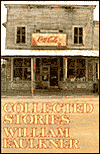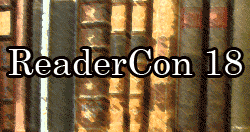 While the above title is very applicable to modeling, this time I’m talking about a story.
While the above title is very applicable to modeling, this time I’m talking about a story.
A writing group can be a blessing and a curse. Being in Altered Fluid is definitely more of the former than the latter, considering all of the great writers I get to work with, and all of the friendships that have grown out of the group, but sometimes it can cause issues with the writing process.
Example: I’ve got this story I’ve been working on for, no kidding, ten years, off and on. I pull it out from time to time, work on it a bit, and then put it away for a while. The writing group has seen it once before, and with the recent armada of pirate anthologies coming about, I gave it another go. It’s a piece set on a privateer during the War of 1812. Not pirates, but close, and unique enough that I thought I’d have a shot. The group read it, gave me suggestions, and I ran with it.
That’s when the problems started. While editing it again for submission, I ran up against two issues. One was trying to implement all of the suggestions. For some reason I forgot they are just that: suggestions. Sometimes when I think I’ve got something that’s close, I can get in the mindset that I need to just do what the other members of the group say. Hell, they are published writers, after all.
The second problem was word count. I was two thousand words over what was stated on the submission guidelines. So I started cutting and hacking at it. Completely removed the beginning that I was fond of. Cut down on the ending, back story, etc.
I sent it out. It was still long, but the pub said they were interested in the concept and maybe they’d have room for it.
I just got the rejection notice this week. They liked it, but in the end it was just too long, and maybe it would benefit from putting back the pieces that I mentioned I’d cut.
So I read it. And I didn’t recognize it. What was this? I didn’t write this, surely. Well, the plot was there, but it was so, well, stripped of any essence, flavor, or color. Essentially it was an elongated outline of the story I had originally written, and it just wasn’t as good. I had taken a story that I really liked and tried to change it so that everyone else would like it, and now the only person that needed to be happy with it — me — didn’t like it.
Every writer has seen this, I’m sure. Taking a story you like and compressing it or stretching it, changing characters, plot points, anything, to try to make it fit a market. It is in no way a situation unique to me, but this is the first time I’ve really noticed myself doing it. What’s the fun of being an unpublished writer if you’re not going to write the way you want to? Don’t get me wrong, I’m not being as arrogant to say “I’m glad they didn’t want it. I didn’t want them to have it anyway!”. That’s crazy talk. I’d have been happy to make a sale, but since I didn’t, I am glad that I now get a chance to work on this some more.
And so my story goes back into the chest for a little while longer. Not too long, though, as I do really like what I’ve got there, and I’ve already done some tweaking on the previous draft. Already it does a much better job of conveying the story I want to tell, and it is doing it in the way I want it to.
It’s broke for now, but already looking better, and the next time I’ll try to listen to my inner voice a bit more and the outer ones a bit less.
 The likes of Matt Kressel, Paul Tremblay and Hal Duncan have done a better job of relating this past week’s World Fantasy better than I can. Suffice to say I attended no panels yet feel no guilt for that, I had some stomach issues that didn’t keep me down for long, and the parties were without peer. I caught up with some old friends and made some new ones. The weekend was a great time with the Altered Fluid crew, a few of which had some excellent readings that I did attend.
The likes of Matt Kressel, Paul Tremblay and Hal Duncan have done a better job of relating this past week’s World Fantasy better than I can. Suffice to say I attended no panels yet feel no guilt for that, I had some stomach issues that didn’t keep me down for long, and the parties were without peer. I caught up with some old friends and made some new ones. The weekend was a great time with the Altered Fluid crew, a few of which had some excellent readings that I did attend. I’ve been a fan of Faulkner’s work for some time now. His body of work is such that it’s taken me years to get through a good chunk of his stories. I’ve never considered him a spec writer, even though his story “A Rose for Emily” qualifies as horror of the highest level, especially considering the era. While reading “Collected Stories” recently, I found another piece by Faulkner that delves into the realm of speculative fiction: “Beyond”. Some will probably read it and roll their eyes at what has become a common spec trope (no, I’m not saying what it is, go read it!). But, for its day, and with Faulkner’s finesse thrown in, I really enjoyed it.
I’ve been a fan of Faulkner’s work for some time now. His body of work is such that it’s taken me years to get through a good chunk of his stories. I’ve never considered him a spec writer, even though his story “A Rose for Emily” qualifies as horror of the highest level, especially considering the era. While reading “Collected Stories” recently, I found another piece by Faulkner that delves into the realm of speculative fiction: “Beyond”. Some will probably read it and roll their eyes at what has become a common spec trope (no, I’m not saying what it is, go read it!). But, for its day, and with Faulkner’s finesse thrown in, I really enjoyed it. I’ve been doing a home improvement project these past few weeks, and the process has got me to thinking about tools.
I’ve been doing a home improvement project these past few weeks, and the process has got me to thinking about tools.


 Okay, stop me if you’ve heard this one:
Okay, stop me if you’ve heard this one:

